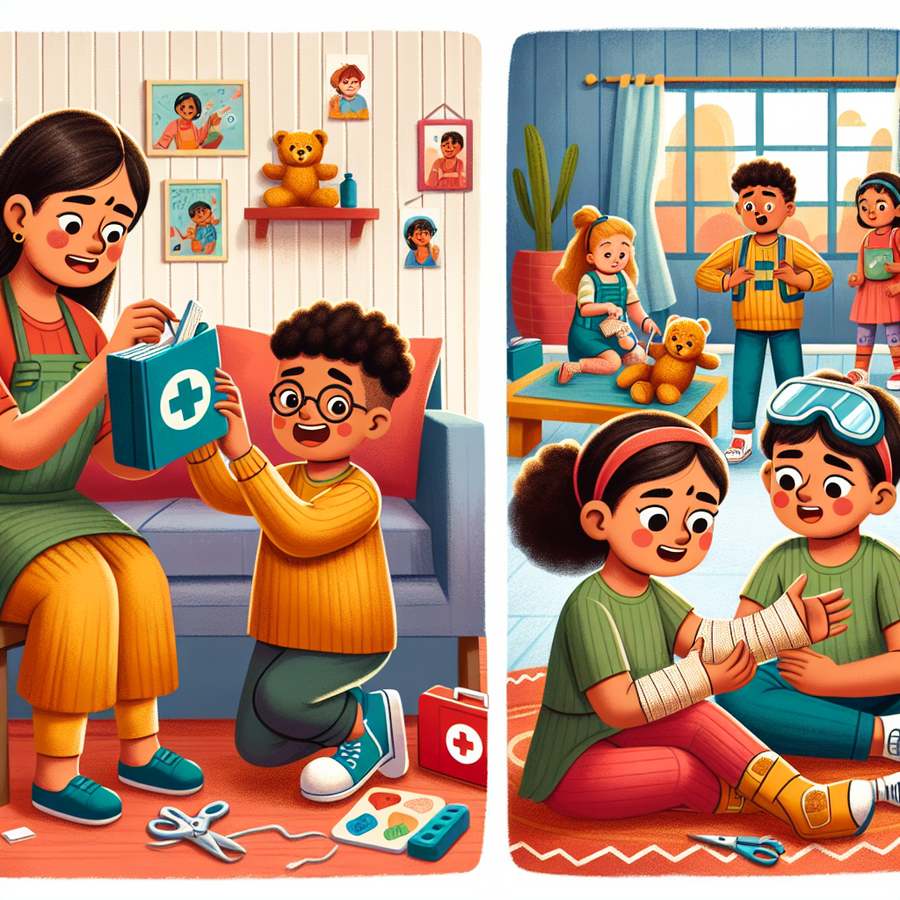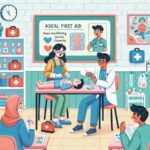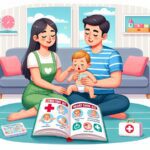First-aid tips every parent should know are crucial for the safety and well-being of children. Accidents can happen anytime, and being prepared is the best defense against potential emergencies. This article aims to provide parents and caregivers with essential first-aid knowledge that can make a significant difference in managing unexpected situations confidently.
Understanding Basic First-Aid Principles
Before diving into specific first-aid tips every parent should know, it’s important to grasp some basic first-aid principles. These foundational guidelines include staying calm during emergencies, calling for professional help when necessary, and having a well-stocked first-aid kit accessible at home and while on the go.
Creating a first-aid kit is your first line of defense. Essential items should include bandages, antiseptic wipes, adhesive tape, scissors, tweezers, sterile gauze, and a thermometer. Keeping these items stocked and knowing how to use them effectively can help address minor injuries promptly and prevent complications.
First-aid Tips Every Parent Should Know
First-aid tips every parent should know go beyond treating minor cuts and bruises. Recognizing the signs of more serious conditions such as choking, burns, or allergies is imperative. For instance, if a child is choking, knowing how to perform the Heimlich maneuver or back blows could save their life. The American Red Cross offers valuable resources and training for these critical situations.
For treating burns, it’s essential to cool the area immediately under running water for several minutes. Avoid using ice, as this can damage the skin further. Covering the burn with a sterile, non-fluffy dressing or cloth can protect the area until it heals. In the case of allergic reactions, parents should be aware of their child’s triggers and have antihistamines or an epinephrine auto-injector ready if prescribed by a doctor.
When to Seek Professional Medical Help
While many situations can be managed at home with the right knowledge and tools, understanding when to seek professional medical help is one of the most critical first-aid tips every parent should know. Severe injuries, difficulty breathing, signs of an allergic reaction, and burns covering a large area of the body or those caused by chemicals should prompt immediate medical attention.
It’s also vital for parents to trust their instincts. If something feels off or if the child is not responding to initial first-aid measures, it’s better to err on the side of caution and consult a healthcare professional. Remember, quick and appropriate action can significantly impact the outcome of any emergency situation.
In conclusion, first-aid tips every parent should know are invaluable tools in ensuring the safety and well-being of children. From preparing a comprehensive first-aid kit to recognizing when to seek medical assistance, these guidelines empower parents and caregivers to act confidently and effectively in a variety of situations. Remember, the knowledge you hold today could be the key to preventing or managing a crisis tomorrow.
For more information on parenting and child safety, explore our articles on balancing work and new motherhood, dealing with baby blues, and creating a baby-friendly home.













